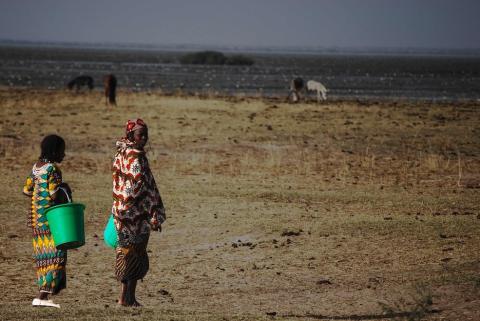Discover hidden stories and unheard voices on land governance issues from around the world. This is where the Land Portal community shares activities, experiences, challenges and successes.
 Follow our
Follow our
Sustainable Development Goals
Blog Series!
Interested in land corruption?
Follow our Land & Corruption Blog Series
for in-depth perspectives from the experts.
Issues
Geographical focus
Weighing gold (Photo: Enough Project, via Flickr, CC BY-NC-ND 2.0 Deed)
In a 2009 TED Talk with over 35 million views, Nigerian novelist Chimamanda Ngozi Adichie speaks about the danger of a single story and the simplifications that they promote. Her observations are highly pertinent in the case of the Sahel. Persistent single stories in the media and the international policy sphere portray the Sahel region as an area of intractable conflict, drought, famine and displacement, but lack meaningful explanation.
Scaling is at the heart of both the name as well as the strategy of LAND-at-scale. Scaling and scaling potential are key in the way the program was designed and is reflected in the three pillars chosen to realize the aim of the program. The first pillar is about scaling successful initiatives and projects; the second pillar focuses on land governance innovations with scaling potential; and the third pillar covers knowledge management, with a focus on gaining a deeper understanding on the conditions required to make scaling successful.
Mali is a landlocked country in the heart of the Sahel that faces land related tensions, food insecurity and severe security challenges despite the 2015 peace agreement. Agriculture accounts for 39% of the national GDP and Mali’s main exports rely on gold, cotton, and livestock.
From Mali to Iraq, people in conflict zones are proving especially vulnerable to climate extremes
An estimated 100,000 people died and livestock were decimated when a long drought hit West Africa in the 1970s.
Isa, a 61-year-old community leader from northern Mali, recalled: “At that time, we only had to search for food. We could move freely with our animals. Now, we can’t even search for food. We are forced to stay in place or move to cities because of the insecurity.”
I recently published a study on urban policy implementation context in Bamako, the capital city of Mali. It was published in January 2020 by African Journal of Land Policy and Geospatial Science.
This blog originally appeared on IISD
Farmers in Mali have gained critical new rights to their traditional land—and rural communities have gained much-needed economic stability—as a result of a historic new law.
By: Camilla Toulmin
Date: June, 20 2016
Source: IIED
Following a recent field visit to central Mali, Camilla Toulmin reports back on local struggles and new initiatives driving change.
Farmers in Mali have gained critical new rights to their traditional land—and rural communities have gained much-needed economic stability—as a result of a historic new law.








